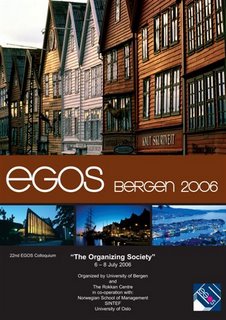Summer holiday is nearing its end. I am looking forward to starting in a new position and pursuing a number of research and teaching projects. I feel quite refreshed already, although am not particularly eager to pack and move all the stuff in my old HUT office.
My family has moved a lot during the summer, from one country location to the other. It is good to be home again. There was, however, an unfortunate incident of me losing my wallet this monday,. I had carelessly placed it into the package holder of our baby carrier, already full of groceries and library DVDs. The incident created a story which I wish to share with the emptiness of cyberspace.

Getting my wallet back and dealing with the after effects renewed my respect for the man in street, as well as government organizations. Conversely, it deepened my disrespect for a certain myltinational banking organization. My first pleasant suprise was that, not only did the person finding the wallet return it without trying to use my credit cards, he had actually returned the around 60 euros of cash within.
"Folks are basically decent, conventional wisdom would say. We read about the exceptions in the papers every day", wrote Neil Peart, the lyricist and drummer for my favorite band Rush. The song is contained on Hold your fire, and album published in the eighties, which I consider to be Rush's masterpiece. I must have listened to it a thousand times since I bought the first vinyl in the mid-eighties, and always find something new. For me, the album brings everything Rush had been striving for in its career, then spanning 20-years: the search for a lush, perfect sound, smart musical ideas, instrumental virtuosity. Yet, the songs are very focused, delineated and do not fall prey to megalomania. Most importantly, Peart's lyrics, initially ripe with grandiose science fiction ideas and metaphysics, had been condenced into little insightful gems, dealing with very human topics from a seasoned, yet compassionate perspective. For instance, I do not know a better way to sum up the pursuit for a lasting relationship than the verse in the song Open secrets:
"I find no absolution
In my rational point of view
Maybe some things are instinctive
But there's one thing you could do
You could try to understand me-
I could try to understand you..."
Anyway, the second pleasant suprise was with the police lost and found office. The lady was very helpful and pleasant in the process of returning my wallet and I left buth relieved and pleasantly suprised.
The bank was another story. I needed to get two credit cards renewed after cancelling them earlier after losing the wallet. I had to push the clerk through a number of stages, i.e.,
- determining where the renewed cards could be claimed (two different branch offices across town)
- determining whether they could be delivered to the same branch office (after being assured that it was unheard of to deliver them to my home location)
- determining the opening hours for the branch offices
- determining a branch office which would be open after 4 PM and close to the place where I work.
Achieving each step made the clerk moan in distress. I am not sure whether it is reasonable to expect that the clerk would voluntarily and actively do the footwork to find out the path of least effort to the customer in a situation where he needs help. All the management books I read at least emphasize the strategic importance of "customer orientation".
I find that it is often easier to find customer orientation in governmental organizations than in big old firms. Maybe they have found determination in fighting the red tape which is so often attributed to their customer service functions.
My family has moved a lot during the summer, from one country location to the other. It is good to be home again. There was, however, an unfortunate incident of me losing my wallet this monday,. I had carelessly placed it into the package holder of our baby carrier, already full of groceries and library DVDs. The incident created a story which I wish to share with the emptiness of cyberspace.

Getting my wallet back and dealing with the after effects renewed my respect for the man in street, as well as government organizations. Conversely, it deepened my disrespect for a certain myltinational banking organization. My first pleasant suprise was that, not only did the person finding the wallet return it without trying to use my credit cards, he had actually returned the around 60 euros of cash within.
"Folks are basically decent, conventional wisdom would say. We read about the exceptions in the papers every day", wrote Neil Peart, the lyricist and drummer for my favorite band Rush. The song is contained on Hold your fire, and album published in the eighties, which I consider to be Rush's masterpiece. I must have listened to it a thousand times since I bought the first vinyl in the mid-eighties, and always find something new. For me, the album brings everything Rush had been striving for in its career, then spanning 20-years: the search for a lush, perfect sound, smart musical ideas, instrumental virtuosity. Yet, the songs are very focused, delineated and do not fall prey to megalomania. Most importantly, Peart's lyrics, initially ripe with grandiose science fiction ideas and metaphysics, had been condenced into little insightful gems, dealing with very human topics from a seasoned, yet compassionate perspective. For instance, I do not know a better way to sum up the pursuit for a lasting relationship than the verse in the song Open secrets:
"I find no absolution
In my rational point of view
Maybe some things are instinctive
But there's one thing you could do
You could try to understand me-
I could try to understand you..."
Anyway, the second pleasant suprise was with the police lost and found office. The lady was very helpful and pleasant in the process of returning my wallet and I left buth relieved and pleasantly suprised.
The bank was another story. I needed to get two credit cards renewed after cancelling them earlier after losing the wallet. I had to push the clerk through a number of stages, i.e.,
- determining where the renewed cards could be claimed (two different branch offices across town)
- determining whether they could be delivered to the same branch office (after being assured that it was unheard of to deliver them to my home location)
- determining the opening hours for the branch offices
- determining a branch office which would be open after 4 PM and close to the place where I work.
Achieving each step made the clerk moan in distress. I am not sure whether it is reasonable to expect that the clerk would voluntarily and actively do the footwork to find out the path of least effort to the customer in a situation where he needs help. All the management books I read at least emphasize the strategic importance of "customer orientation".
I find that it is often easier to find customer orientation in governmental organizations than in big old firms. Maybe they have found determination in fighting the red tape which is so often attributed to their customer service functions.




